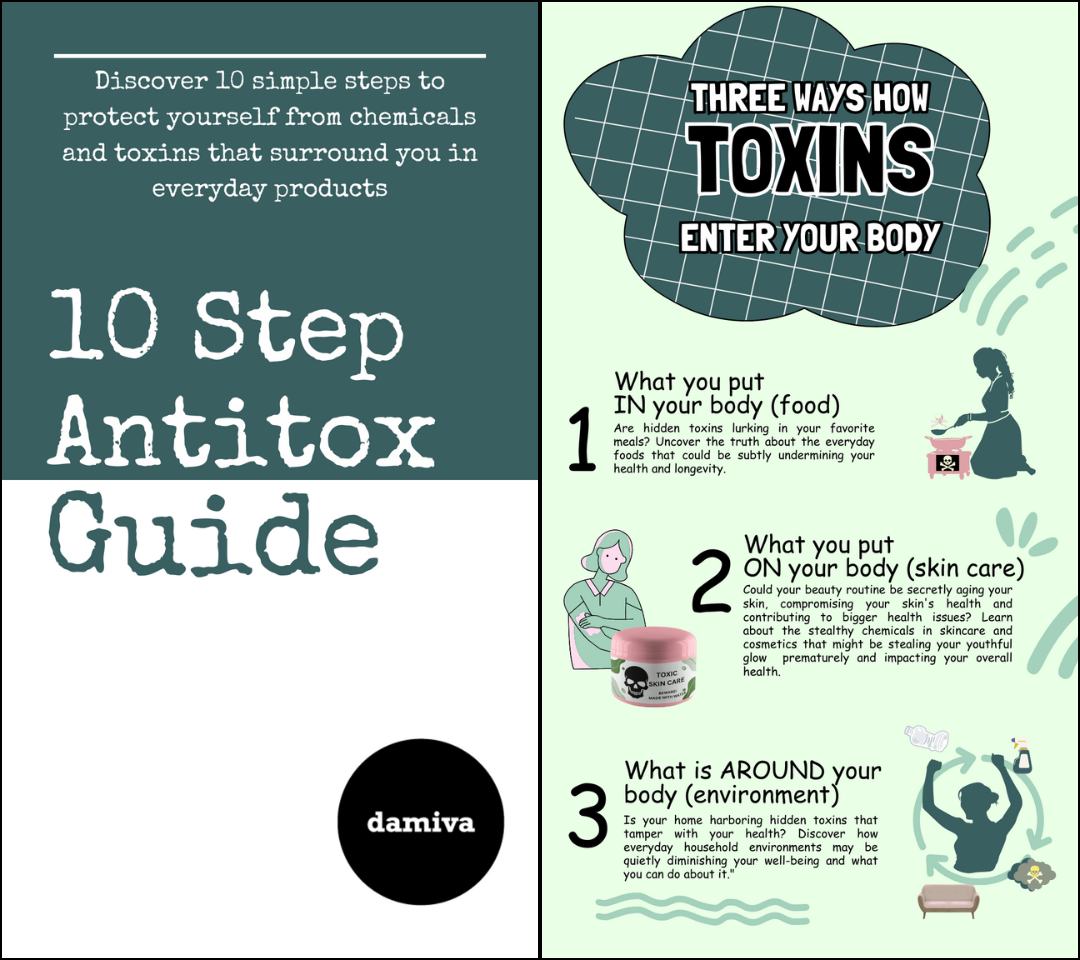Introduction to Hormonal Imbalance
Understanding Hormones and Their Functions
Hormones are the body’s chemical messengers, orchestrating a range of physiological activities from metabolism and reproduction to mood regulation and sleep patterns. Like an intricate symphony, each hormone has a specific role, ensuring the smooth operation of bodily functions. When hormones are in balance, our bodies function harmoniously. However, disruptions in this delicate balance can lead to a condition known as hormonal imbalance, where there is either an excess or deficiency of certain hormones.
Common Signs of Hormonal Imbalance
Identifying a hormonal imbalance can be challenging as it presents a spectrum of symptoms. These may include irregular menstrual cycles, mood swings, fatigue, weight gain or difficulty losing weight, insomnia, changes in appetite, hair loss, skin issues, and reduced libido. The manifestation of these symptoms can significantly impact an individual’s quality of life, making it essential to recognize and address hormonal imbalances.
The Impact of Menopause on Hormonal Health
Menopause marks a significant hormonal shift in a woman’s life, often characterized by a decline in estrogen and progesterone levels. This transition can lead to various symptoms, including hot flashes, night sweats, vaginal dryness, and mood changes. Understanding and managing these changes is crucial for maintaining hormonal health during and after the menopausal transition.
Why Natural Balance is Essential
A natural balance of hormones is fundamental to overall well-being. Hormones influence numerous bodily functions, and an imbalance can lead to short-term discomfort as well as long-term health issues such as heart disease, diabetes, and certain cancers. Embracing natural techniques for balance, such as dietary adjustments, stress management, and lifestyle changes, can help restore and maintain this crucial equilibrium, promoting a healthier, more vibrant life.
By the way, something for you, a little gift!!!
I am just in the middle of publishing my book. It’s about How women can balance their hormones. One part is about food and diet, of course.
Follow this link and enter your email.
I will send you this part of the book for free once the book is published. It has many concrete, practical tips and recipes and will help you feel better during menopause or times of Big hormonal fluctuations.
Annette, Damiva Lead for Health & Wellness

Dietary Adjustments for Hormonal Harmony
Phytoestrogens: Nature’s Hormone Modulators
Phytoestrogens are plant-derived compounds that can mimic or modulate the effects of estrogen in the body. They are found in a variety of foods, including soybeans, flaxseeds, and sesame seeds. Incorporating phytoestrogens into your diet can help balance hormone levels, particularly for those experiencing menopausal symptoms or estrogen dominance. However, it’s important to consume them in moderation and consult with a healthcare provider, as they may not be suitable for everyone.
Foods to Include for Hormonal Support
To support hormonal health, focus on including the following foods in your diet:
- Leafy Greens: Rich in essential nutrients that support hormone balance.
- Cruciferous Vegetables: Help with liver detoxification and estrogen metabolism.
- Healthy Fats: Avocados, nuts, and seeds provide the building blocks for hormone production.
- Fiber-Rich Foods: Support gut health and the excretion of excess hormones.
- Protein: Essential for hormone synthesis; include plant-based sources like lentils and organic, grass-fed animal products.
Foods to Avoid or Limit
Some foods can disrupt hormonal balance and should be limited, such as:
- Processed Foods: Often high in unhealthy fats and additives.
- Refined Sugars: Can lead to insulin resistance and hormonal disturbances.
- Excessive Caffeine: May affect cortisol and sleep quality.
- Alcohol: Can impair liver function and hormone regulation.
The Role of Gut Health in Hormone Regulation
A healthy gut microbiome is essential for hormone balance. The gut flora helps metabolize hormones, particularly estrogen, and a disrupted microbiome can lead to hormonal imbalances. To support gut health:
- Eat Probiotic and Prebiotic Foods: Such as yogurt, kefir, and asparagus to nourish beneficial gut bacteria.
- Consume Fiber: Found in fruits, vegetables, and whole grains to promote regular bowel movements and detoxification.
- Stay Hydrated: Water aids in digestion and nutrient absorption, which are vital for hormonal health.
- Manage Stress: Chronic stress can negatively impact gut health and, consequently, hormone regulation.
By making these dietary adjustments, you can take a significant step towards harmonizing your hormones and enhancing your overall well-being.
Lifestyle Changes to Support Hormonal Balance
The Importance of Regular Exercise
Engaging in regular physical activity is a cornerstone of maintaining hormonal health. Exercise helps to regulate insulin levels, manage stress hormones like cortisol, and can enhance the production of hormones that make us feel happy and relaxed, such as endorphins. Aim for a balanced routine that includes cardiovascular exercise, strength training, and flexibility exercises. Not only does this help in weight management, but it also supports muscle growth, bone density, and a healthy heart, all of which are influenced by hormonal activity.
Stress Reduction Techniques
Chronic stress can lead to an overproduction of cortisol, which may disrupt the balance of other hormones. To mitigate stress, incorporate practices such as mindfulness meditation, deep breathing exercises, and yoga. These techniques can lower stress hormone levels, improve sleep quality, and contribute to a more balanced hormonal state. Additionally, engaging in hobbies and activities that bring joy can also be effective in managing stress levels.
Sleep Hygiene for Hormonal Health
Quality sleep is essential for hormonal balance. The body repairs itself and regulates hormone production during sleep, particularly the release of growth hormone and the regulation of cortisol and insulin. To improve sleep hygiene, establish a regular sleep schedule, create a restful sleeping environment, and avoid stimulants like caffeine and electronics before bedtime. Aim for 7-9 hours of sleep per night to support overall hormonal health.
Avoiding Environmental Toxins
Exposure to environmental toxins can disrupt endocrine function and lead to hormonal imbalances. To reduce exposure, opt for organic produce to avoid pesticides, use non-toxic household cleaning products, and choose personal care items that are free from harmful chemicals like parabens and phthalates. Additionally, reducing the use of plastic, especially when it comes to food and drink containers, can decrease exposure to endocrine-disrupting compounds like BPA.

Bette 100% All-Natural Relaxing Lavender Body Lotion.
Chemical-Free
Your relaxing night time body moisturizer to leave the day’s stress behind. Decompress and wish your body good night with the calming scent of lavender.
Natural Supplements and Herbs
Herbal Allies for Hormonal Health
Herbs have been used for centuries to support hormonal balance and overall well-being. Phytoestrogens, found in plants like flaxseeds and soy, can mimic estrogen in the body and may help balance hormone levels. Chaste tree berry (Vitex agnus-castus) is renowned for its ability to regulate menstrual cycles and improve progesterone levels. Black cohosh and red clover are other herbs often recommended for their potential to alleviate menopausal symptoms such as hot flashes and mood swings. Incorporating these herbal allies into your routine can be done through teas, capsules, or tinctures, but it’s important to consult with a healthcare provider before starting any new herbal regimen.
Vitamins and Minerals for Hormone Support
Vitamins and minerals play a crucial role in maintaining hormonal equilibrium. Magnesium is essential for hormone production and can be found in dark leafy greens, seeds, and legumes. B vitamins, particularly B6, B9 (folate), and B12, are vital for energy production and managing stress, which in turn supports hormonal balance. Foods rich in B vitamins include salmon, leafy greens, and eggs. Probiotics are also important as they promote a healthy gut microbiome, which is linked to hormone regulation. Including vitamin C-rich foods and omega-3 fatty acids from fish or flax seeds can further support hormonal health.
Understanding the Role of Adaptogens
Adaptogens are a unique class of herbs that help the body resist and adapt to stress, which can significantly impact hormone levels. Ashwagandha, Rhodiola, and Holy Basil are well-known adaptogens that can help modulate the stress response, thereby supporting adrenal health and hormonal balance. These herbs can be particularly beneficial during times of chronic stress or hormonal transitions like menopause. However, because adaptogens can be potent, it’s essential to use them under the guidance of a healthcare professional.
Precautions and Considerations
While natural supplements and herbs offer many benefits, they are not without risks. It’s crucial to consult with a healthcare provider before starting any supplement, especially if you have a medical condition, are pregnant, or are taking medications. Dosage and quality vary widely, so choose reputable brands and consider third-party testing to ensure safety and efficacy. Be mindful of potential interactions between herbs and medications, and always start with the lowest possible dose to see how your body reacts. Remember, supplements are meant to complement a healthy diet and lifestyle, not replace them.
Holistic Therapies and Practices
Acupuncture and Hormonal Balance
Acupuncture, a key component of Traditional Chinese Medicine, has been used for centuries to promote healing and balance within the body. This ancient practice involves the insertion of fine needles into specific points on the body to stimulate the flow of energy or “Qi.” When it comes to hormonal health, acupuncture can be particularly effective. It is believed to regulate the endocrine system, which is responsible for hormone production and secretion. By targeting certain acupuncture points, practitioners aim to correct imbalances that contribute to symptoms such as menstrual irregularities, menopausal discomfort, and stress-related hormonal issues. Studies suggest that acupuncture can help in normalizing endocrine function and alleviating symptoms, making it a valuable tool for those seeking natural hormonal harmony.
Yoga and Meditation for Endocrine Health
Yoga and meditation are powerful practices for maintaining endocrine health. The combination of physical postures, breathing exercises, and meditation in yoga helps to reduce stress, which is a major contributor to hormonal imbalance. Certain yoga poses are known to stimulate glands in the endocrine system, such as the thyroid, adrenal glands, and pancreas, promoting optimal hormone production and regulation. Meditation, on the other hand, can lower cortisol levels and enhance overall well-being, creating a favorable environment for hormonal balance. Regular practice of these mind-body techniques can be a cornerstone in managing hormonal health naturally.
Massage and Bodywork Techniques
Massage and other bodywork techniques offer more than just relaxation; they can also play a role in balancing hormones. By reducing stress and promoting relaxation, massage therapy can help to decrease cortisol levels and increase the production of hormones like oxytocin, which promotes feelings of well-being. Additionally, certain massage techniques can improve circulation and lymphatic drainage, aiding in the removal of toxins that may affect hormonal health. Techniques such as abdominal massage may specifically target the reproductive organs and endocrine glands, supporting their function and contributing to hormonal equilibrium.
Aromatherapy and Essential Oils
Aromatherapy utilizes the power of essential oils to improve physical and emotional health. When it comes to hormonal balance, certain essential oils can be particularly beneficial. For example, clary sage oil is known for its ability to help regulate menstrual cycles and relieve PMS symptoms. Lavender oil is renowned for its calming properties, which can alleviate stress and support adrenal health. Essential oils can be used in various ways, including inhalation, topical application when diluted with a carrier oil, or by adding a few drops to a warm bath. It’s important to use high-quality, pure essential oils and to consult with a professional to ensure safe and appropriate use.
Conclusion
Embracing holistic therapies and practices can be a transformative approach to achieving hormonal balance. Acupuncture, yoga, meditation, massage, and aromatherapy are all natural techniques that can harmonize the endocrine system and enhance overall well-being. By incorporating these practices into your routine, you can empower yourself to manage hormonal health in a gentle, non-invasive manner. Remember, while these methods can be highly effective, it’s always wise to consult with healthcare professionals, especially when dealing with significant hormonal imbalances.
The Role of Skincare in Hormonal Health
Choosing the Right Skincare Products
When it comes to skincare, the products you choose can have a significant impact on your hormonal health. It’s essential to select items that support your skin’s natural balance without introducing harmful chemicals that can disrupt your endocrine system. Look for products free from endocrine-disrupting chemicals (EDCs) such as parabens, phthalates, and synthetic fragrances. Instead, opt for skincare with natural ingredients that are gentle on the skin and body.

Popular Read: Endocrine Disruptors in Skincare: What You Need to Know
Natural Ingredients for Healthy Skin
Natural ingredients can be powerful allies in maintaining hormonal balance through skincare. Ingredients like chamomile and aloe vera soothe the skin, while antioxidants such as vitamins C and E protect against environmental damage. Hyaluronic acid and ceramides are excellent for hydration and maintaining skin elasticity. For those dealing with hormonal acne, ingredients like salicylic acid and benzoyl peroxide can help manage breakouts. Always ensure the pH of skincare products is mildly acidic, around 4.6 to 5.4, to maintain the skin’s natural barrier.
The Connection Between Skin and Hormones
The skin is a reflection of our internal health, including the state of our hormones. Hormonal imbalances, such as fluctuations in estrogen, progesterone, and testosterone, can manifest as acne, dryness, or oiliness. During different life stages, such as puberty, pregnancy, or menopause, these imbalances can become more pronounced. By using skincare products that cater to these hormonal changes, you can help mitigate their effects on the skin.
The right skincare routine can play a vital role in maintaining hormonal health. By choosing products wisely, trusting all natural ingredients, understanding the skin-hormone connection, you can support your hormonal balance and achieve healthier, more radiant skin.
Do you know the 3 main ways how your body is exposed to harmful chemicals, which affect your hormones, your thyroid, health and beauty?
If not, it may be time to learn about them. It takes about 1-2 minutes.
We have a few suggestions how to avoid these silent health and immune system killers in our new guide.

Conclusion: Empowering Yourself for Hormonal Health
Creating a Personalized Hormone Balance Plan
Embarking on the journey to hormonal harmony begins with a tailored approach. Recognize that your body is unique, and what works for others may not work for you. Start by assessing your current lifestyle, diet, and stress levels. Incorporate the insights gained from this article, and create a plan that addresses your specific needs. This might include dietary changes, such as incorporating more phytoestrogens and gut-friendly foods, or lifestyle adjustments like regular exercise and stress reduction practices.
Monitoring Your Progress and Adjusting as Needed
As with any health regimen, it’s crucial to track your progress. Keep a journal to note changes in your symptoms, mood, and overall well-being. Be patient; hormonal balance can take time. If after several weeks you don’t notice improvement, or if symptoms worsen, it may be time to adjust your plan. This could mean tweaking your diet, intensifying your exercise routine, or exploring additional stress management techniques. Remember, this is a dynamic process that requires flexibility and resilience.
When to Seek Professional Guidance
While many hormonal imbalances can be addressed with natural techniques, there are times when professional guidance is necessary. If you experience persistent symptoms or suspect a more serious condition, such as PCOS or thyroid disorders, consult a healthcare provider. Specialists in women’s health or functional medicine can offer comprehensive evaluations and personalized treatment plans that align with your natural hormone balancing efforts.
Staying Informed and Proactive
Staying informed about hormonal health is empowering. As research evolves, new insights and methods emerge. Subscribe to health newsletters, attend workshops, or join support groups to stay connected with the latest information. Being proactive also means advocating for your health. Don’t hesitate to ask questions, seek second opinions, or explore alternative therapies if conventional treatments don’t align with your wellness philosophy.
In conclusion, harmonizing your hormones is a personal and proactive journey. By creating a customized plan, monitoring your progress, seeking professional guidance when necessary, and staying informed, you can take control of your hormonal health. Embrace the process with patience and positivity, and remember that you are the conductor of your own hormonal symphony.











